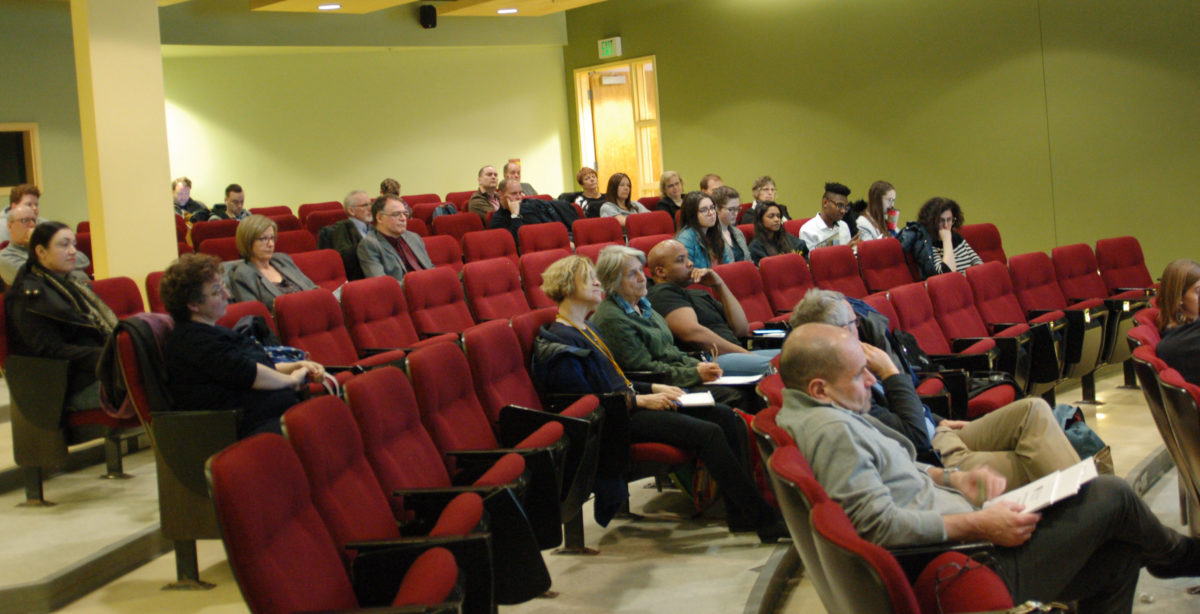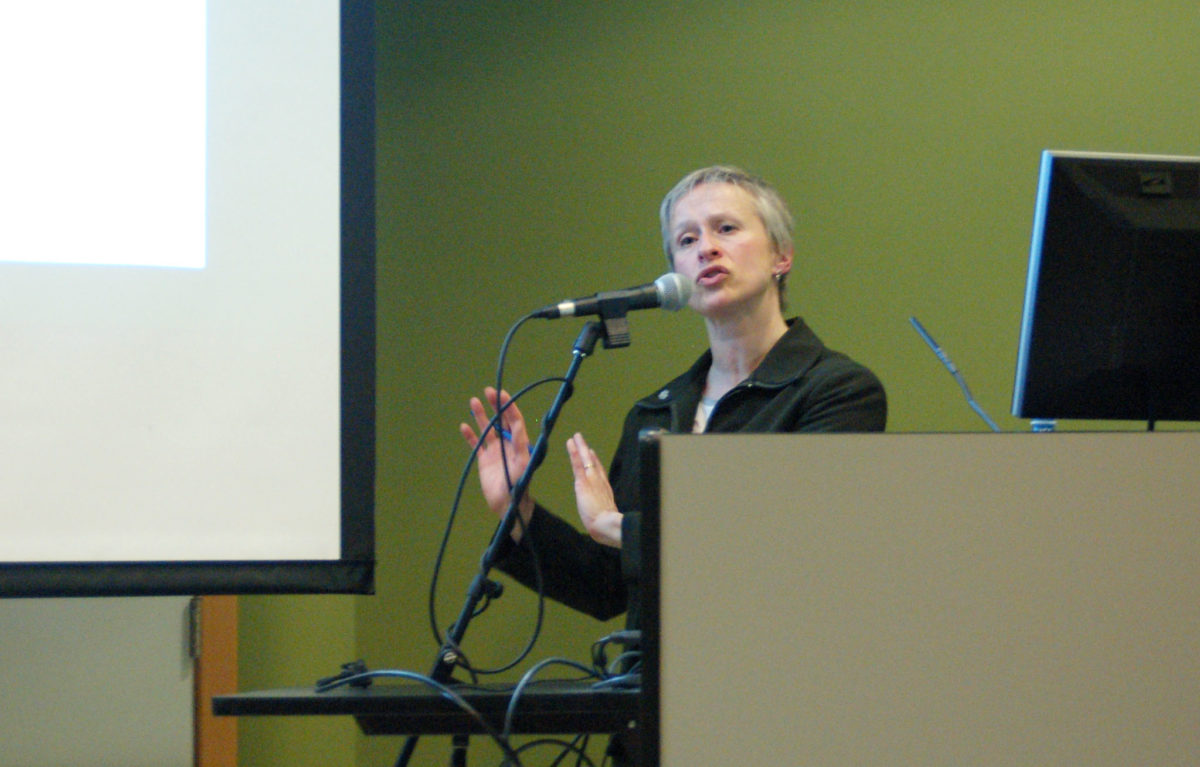There aren’t any guidelines or plans to place a cap on tuition fees at St. Thomas University and “there’s a financial need” for tuition to increase, according to Lily Fraser, the university’s vice-president finance and administration.
On March. 25, STU hosted a budget town hall as part of the consultation process for the 2019-20 Budget Development Report. The meeting was open to the public. About 30 people attended. Most were administration, faculty and those on the President’s Advisory Committee. Only six were students.
President Dawn Russell opened by detailing last year’s deficit of $379,000. She said there was an increase in expenses due to allocating $350,000 in scholarships. This is the first time since 2013 that the operating budget has been able to sustain scholarships while remaining in the predicted deficit. Regarding ancillary services, the university had a surplus of $105,765, which is an improvement from last year’s deficit of $81,828.
Russell said the university is predicting a budget deficit of $353,700 and an ancillary services surplus of $187,800 for the 2018-19 academic year. Ancillary services include costs of residences.
Russell said the university is uncertain about the operating grant from the provincial government, as a Memorandum of Understanding (MOU) has yet to be signed between STU and the provincial government.
St. Thomas’ operating grant has been the same since 2015. The grant is 89 per cent of the provincial average and $1.4 million lower per full-time enrolment than the provincial average.
STU has tried to increase their operating grant by discussing this issue with both the Gallant and Higgs governments.
“Our objective is to correct that inequity. We have made progress on file, but not enough to bring out an acceptable, beneficial agreement. We will continue to work with our Board of Governors and government officials to find a solution,” said Russell.
Fraser said STU won’t hear back about the status of the MOU until spring. This is a problem because the only other source of revenue is student tuition, said Russell.
Domestic student tuition is $6,776 compared to the average of $6,944. Fraser said because of the inequity in the operating grant, STU students pay 43 per cent of the cost of their education, whereas other students in the province at other post-secondary institutions pay an average of 34 per cent. International student tuition at STU is $15,230.

In 2013, STU and the province agreed to a five-year domestic tuition fee timeline. This meant domestic tuition couldn’t increase more than three per cent plus $170 per year. This agreement is no longer in place, as its final year was the 2017-18 academic year.
Ben McLaughlin, a second-year psychology and gerontology major, attended the meeting. He raised concerns about potential tuition increases and asked if the university had a plan to cap it.
“The uncertainty of it is worrying as a student, knowing that tuition can go up by $2,000 and currently there’s nothing really stopping you from doing that … do you understand how that can be very worrying?” said McLaughlin.
“Absolutely,” said Fraser. She said it was a good topic to bring to the President’s Advisory Committee.
Brianna Workman, president of the St. Thomas University Students’ Union and member of the President’s Advisory Committee, asked if STU has ever considered having an internal policy for international tuition regulation, since the provincial government doesn’t pay a percentage of their tuition.
“The tuition for international students ideally should cover the full cost, because the government doesn’t pay operating grants for international students,” Russell said.
Husoni Raymond, the vice-president administration, incoming STUSU president and member of the committee, asked if there’s a possibility that tuition could decrease.
“I don’t think I’ve ever seen tuition go down. Because the reality is that the cost of services increase every year. It’s always a bit of a struggle to balance the budget, even in the best of circumstances,” said Fraser.
Workman asked if STU could create their own tuition schedule without signing an MOU.
Fraser said STU’s Board of Governors has the authority to set tuition fees without an MOU and believes they don’t have time to wait for signage.
McLaughlin asked for clarity on whether there’s a way to know if tuition will increase.
“I think there’s a financial need for tuition to increase. But then again, we’ll take advice from the Advisory Committee on their budget … I mean, that’s the whole point of having that committee,” said Fraser.

